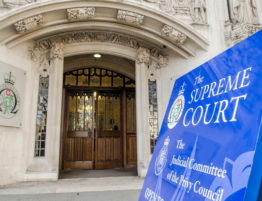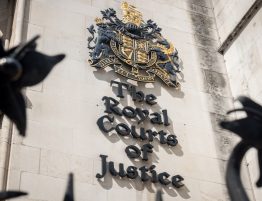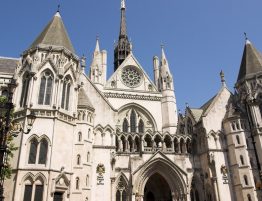
In the recent “dieselgate” case of Crossley and others v Volkswagen Aktiengesellschaft and others (“Crossley v VW”), the High Court was required to consider the difficult question of how aware a claimant must be to bring a fraud claim based on the alleged breach of an implied misrepresentation
Put simply, does a claimant need to have actual, conscious, awareness of the implied representation in question to be able to rely upon it? VW argued that the answer to this question must be yes and applied to strike out the dieslegate claimants’ claim for fraudulent misrepresentation for that very reason.
However, the High Court found against them and, in the process, held that a claimant could show reliance in appropriate counterfactual circumstances if it possessed what it called “quasi-automatic awareness”.
Although only an interlocutory decision, Crossley v VW represents a potentially important decision for victims of civil fraud in what would appear to be a developing area of the law. Later this month, the Court of Appeal will consider the same issue again in the eagerly awaited case of Leeds City Council v Barclays Bank plc (“Leeds v Barclays”). Will the Court of Appeal lay down a new awareness test? It will be fascinating to find out.
The law as it stands
A claim for fraudulent misrepresentation is based on the tort of deceit and arises where:
In helpful guidance to practitioners Lord Justice Males summarised the case law principles on ordinary living expenses as follows:
- The defendant makes a false representation to the claimant;
- The defendant knows that the representation is false, or alternatively is reckless as to whether it is true or false;
- The defendant intends that the claimant should act in reliance upon it; and
- The claimant does so act in reliance upon the misrepresentation and suffers loss.
In recent years, there have been a number of cases in which the court has been asked to consider whether an implied fraudulent misrepresentation is enough to make out the tort. In the process, this has led to judicial consideration of the “awareness condition”, and the extent to which the claimant must have been aware of the representation at the time of entering into the contract (with the argument being that the claimant cannot have relied on the representation if they were not aware of it).
It is fair to say that recent decisions have not gone the claimant’s way, most recently at first instance in Leeds v Barclays. However, in that case, the decision was far from clear, so much so that in the VW dieselgate litigation, both the claimants and the defendants attempted to rely on Leeds v Barclays to support their respective pleadings.
The question before the court in Crossley v VW
The VW dieselgate litigation was brought by 86,000 owners of VW, Audi, Skoda and SEAT manufactured cars which contained a “defeat device” which would allow various limits set by EU Regulations concerning nitrogen oxide and dioxide to be met when activated. In actual fact, the defeat device was defective.
The claimants say that they relied on various implied representations as to the roadworthiness of the cars, specifically that they complied with EU and UK regulatory requirements at the point of sale.
VW applied to strike out the claimants’ claims for a lack of reliance. In making their application, VW argued that the claimants needed to have had a conscious awareness of the car manufacturers’ representations at the time of purchase to make good their claims and sought to rely on Leeds v Barclays, where the court had held that some form of active awareness was necessary, and that reliance on an assumption was insufficient.
The claimants argued that the law was far from clear in this regard and pointed to the fact that Leeds v Barclays has been heavily criticised. Further, they argued that Leeds v Barclays, which related to alleged LIBOR rigging, was far more complex and therefore distinguishable from the present case. Waksman J agreed and found that the claimants’ fraudulent misrepresentation claim had a “real prospect of success” and should not be struck out.
Waksman J considered the case law, including DPP v Ray and Spice Girls Ltd v Aprilia and, from those cases, considered that there have been instances where “at least sometimes, an implied representation, intended by the representor to be relied upon by the representee, which is accompanied at least by the counterfactual of truth, can be sufficient”.
In the VW dieselgate case, the “counterfactual of truth” (what would have happened but for the alleged misrepresentation?) was that none of the claimants would have purchased an affected vehicle if they had known that the regulatory approval for it had been obtained by fraudulent means.
Whilst Waksman J accepted that the claimants were unable to make out a conscious state of awareness, he refused to say that the awareness condition could not be made out on the strength of an assumption or a counterfactual of truth.
What this could mean
The decision in Crossley v VW is a pragmatic one and recognises that a strict adherence to the “awareness condition” applied in decisions such as Leeds v Barclays may not be appropriate in all cases and will very much depend on the facts of any given case and how easily and precisely the implied representation is capable of being framed.
In refusing VW’s strike-out application, Waksman J opened up the possibility that it could be sufficient to found an implied fraudulent misrepresentation claim where a claimant possesses a “quasi-automatic awareness” in which it has assumed a particular state of affairs to be the case, based on the conduct of the representor.
The full trial in Crossley v VW will not be heard until 2023. Before then, it will fall upon the Court of Appeal to consider this issue in the case of Leeds v Barclays unless that case should settle. As practitioners in this area know all too well, banks do not like to set precedents and invariably look to settle cases which are well arguable. If that should happen, we will have to wait for an authoritative decision on the issue to come along.
DS Law is a law firm specialising in Fraud & Asset Tracing, Banking and commercial disputes. For more information please contact Gopi Binning.





Write a comment:
You must be logged in to post a comment.